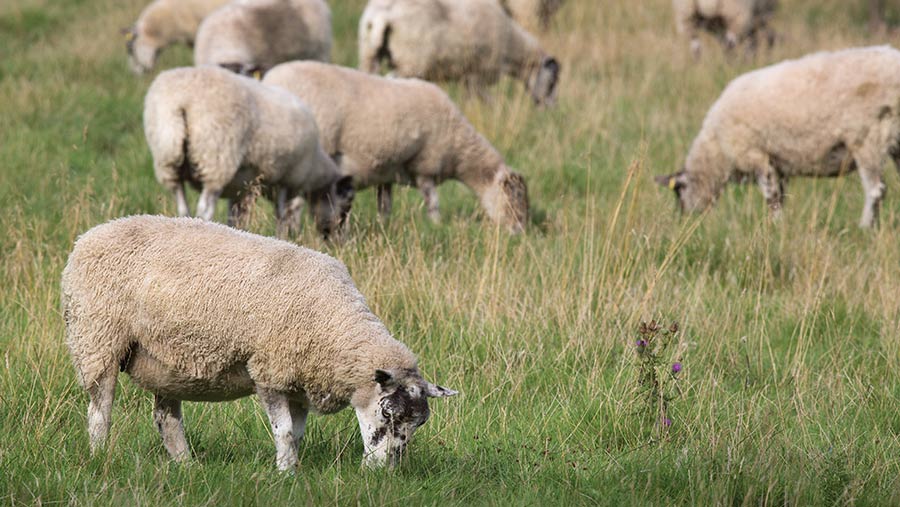£2.9m project aims for lower methane emissions from sheep
 © Tim Scrivener
© Tim Scrivener The UK sheep industry is turning to genetic selection to reduce methane emissions without negatively affecting important traits such as grazing ability.
Over the next three years, a £2.9m initiative, funded by Defra’s Farming Innovation Fund, will measure methane emissions from 13,500 sheep in 45 flocks – 42 in England, two in Scotland and one in Wales.
See also: Chambers deployed to measure methane emissions from sheep
By analysing the data, the researchers hope to breed sheep with a naturally low carbon footprint, creating an Estimated Breeding Value (EBV) that combines methane yield, feed efficiency, productive lifetime efficiency and health.
Sheep would be ranked on their genetic potential to reduce their carbon footprint, allowing farmers to easily identify the low emitters.
So far the project involves Innovis, Exlana, Lleyn, Poll Dorset and Dorset Horn sheep, but other breeds are being encouraged to participate.
Target
In the UK about 50-60% of a sheep farm’s carbon footprint comes from the flock’s enteric methane – produced as the sheep digest their feed. The industry has set a target to reduce this by 30% by 2030.
Inovis sheep geneticist Janet Roden said the aim of the project was to produce efficient maternal sheep with a naturally low carbon footprint, but with efficiency and health improvements too.
But breeding a sheep to reduce methane emissions could reduce the size of its rumen and alter the way microbiome organisms work, which could have consequences for feed intake and grazing behaviour.
The challenge from this research will be to avoid unintended consequences for other traits, such as the ability to utilise poor-quality grazing.
Protecting other traits
Phil Stocker, chief executive of the National Sheep Association, said protecting other traits was crucial.
“There is no point in selecting for low methane if we lose other valuable traits,” he said.
New Zealand sheep breeders are already ahead of the curve, with a decade of research on breeding values for methane emissions – New Zealand lamb labelled “net zero” is already available to the consumer.
Dewi Jones, of Innovis, said it was important for the UK to protect the credentials of its own lamb, by demonstrating that the industry was not “shirking away” from its requirement to reduce emissions.
Currently only 15-20% of UK flocks used performance-recorded maternal rams in their breeding programmes, he said, so the challenge would be to get more farmers on board once the project had ended.
